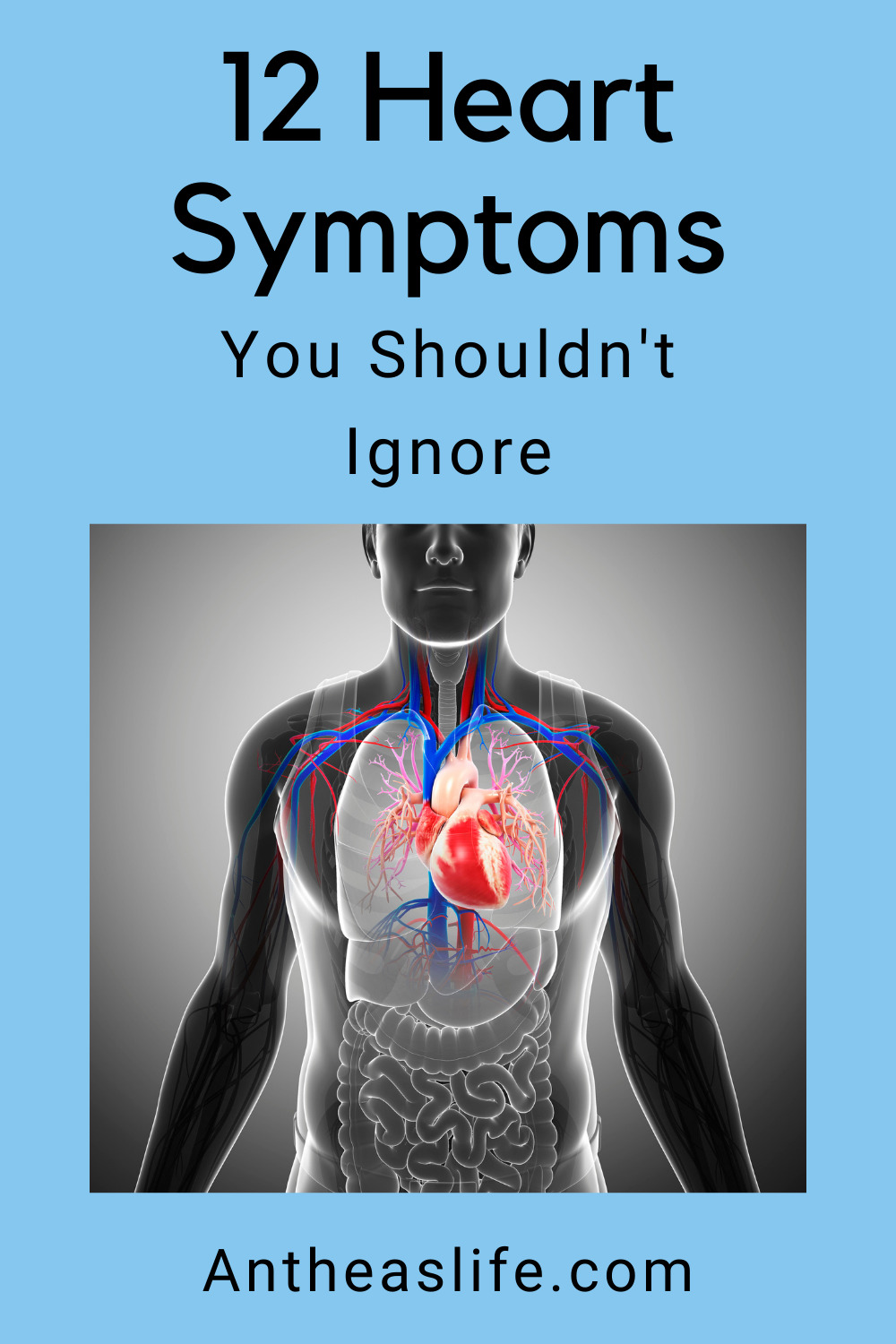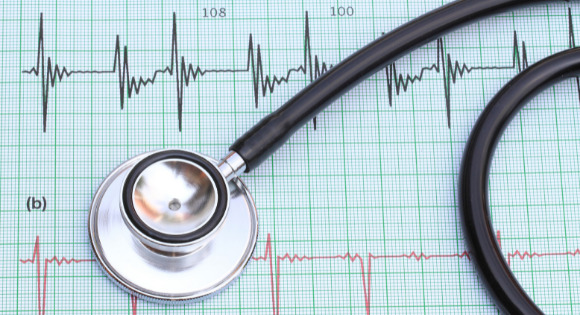When it comes to your heart, it is imperative to take exceptional care of it. It is one of the most essential organs. In this post, I am sharing crucial heart symptoms that should not be overlooked.
12 Heart Symptoms You Shouldn’t Ignore

Chest Pain
One of the most commonplace signs of a heart attack is chest pain, and it is not necessarily a sudden or crushing pain. Sometimes it’s more a feeling of heaviness or queeziness that lasts a few minutes, goes away, and returns. Some individuals mistake it for heartburn.
Erratic Heartbeat
Heart disorders like AFib (atrial fibrillation) can result in your heart beating out of sync and rapidly. It might feel like a flutter in your chest. Afib can cause a stroke or blood clots when left untreated. You might not notice your heart is beating unusually, but you might experience lightheadedness, fatigue, or shortness of breath.

Rapid Heart Tempo
With heart failure, your heart might be beating rapidly to make up for its inability to pump sufficiently. You may feel like your heart is racing.
Back or Arm Pain
Men typically experience pain in the left arm while women might have it in both arms. A heavy or “useless” feeling might signal a heart attack or angina. Pain might begin in the chest and travel to your upper or lower back. If you experience sudden pain that seems to originate out of thin air without it being linked to a particular muscle or joint, it could be a red flag.
Nausea or Fainting
People who struggle with heart failure often feel as if they’re going to pass out. It happens when your blood pressure gets low and your heart neglects to pump sufficient oxygen to your brain. It could be due to a heart condition or overheating. Lack of appetite and nausea might be symptoms of heart problems.

Uncommon Fatigue
With everyone having busy lives, it is normal to feel tired every now and again. However, if you’re constantly fatigued, feeling drained, and having trouble sleeping, it is definitely not a good sign and you should see a doctor.
Having Issues Getting Around
With heart failure, the body transports oxygen and blood away from less important areas like the limbs and sends it to the heart and brain. This will make getting around much harder. Normal activities like going up or down stairs, walking or taking your dog for a stroll might be a challenge. When your heart grows weaker, walking a short distance from one room to the next could tire you out.
Loud Snoring
Loud snoring every night could signal that you’re suffering from sleep apnea. It is a medical condition that causes a pause in your breathing while being asleep. It is associated with atrial fibrillation and could enhance your risk of type 2 diabetes and hypertension. If sleep apnea is left untreated, it will increase the risk of life-threatening heart diseases.

Swelling
Another sign of heart failure is swelling in the ankles, feet, stomach or legs. You might notice your shoes start to feel tight. When blood flow out of the heart decelerates, blood flowing back to it through your veins can back up. This leads to fluid accumulation in areas where it shouldn’t. You kidneys struggle to get rid of salt and water, which can cause more swelling.
Jaw or Neck Pain
When you’re experiencing a heart attack, you might feel pain above your shoulders and your lower jaw on both sides might feel tight or hurt. You might also feel pain in your neck or a burning sensation in the throat.
Having Trouble Breathing and Sweating
You might start sweating profusely when you’re having a heart attack, even if you’re not engaging in any strenuous activities. You could feel clammy and cold, short of breath, and have trouble breathing when you’re lying down.
Chest Wheezing and Coughing
Shortness of breath in addition to wheezing and coughing could be symptoms of heart failure. This happens when your heart doesn’t pump sufficiently to provide your body with the necessary oxygen and blood. When having a heart attack, fluids and blood can back up in the lungs. You might struggle to breathe and hear a rattling noise when you inhale. You might even cough up mucus with a pinkish colour.
When to Seek Emergency Assistance
If you or anyone you know experiences any of the following signs of a heart attack, call an ambulance or emergency services immediately.
- Squeezing, pain or pressure in the chest
- Shortness of breath
- Discomfort or pain that spreads to the arms, shoulders, neck, or back
- Fainting or lightheadedness
- Nausea and sweating
Conclusion
I hope this post about 12 heart symptoms you shouldn’t ignore has been helpful and that you will share it with friends and family. Knowing what signs to be on the lookout for can mean the difference between life and death.
Sending you lots of light, love, and hearty vibes
Anthea

